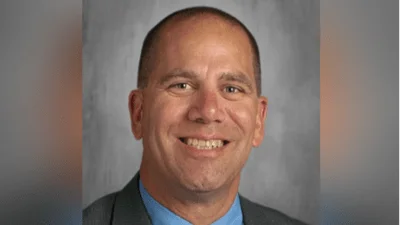Rick Gundrum, Wisconsin State Representative for 58th District | Facebook
Rick Gundrum, Wisconsin State Representative for 58th District | Facebook
According to the Wisconsin State Legislature's official website, the bill was described as follows: "applying the motor vehicle fuel tax supplier’s administrative allowance to diesel fuel, a motor vehicle fuel tax refund for evaporation losses, and making an appropriation. (FE)".
The following is our breakdown, based on the actual bill text, and may include interpretation to clarify its provisions.
In essence, this bill modifies Wisconsin's motor vehicle fuel tax system by extending an existing administrative allowance to include diesel fuel, allowing suppliers to retain 1.35% of the motor vehicle fuel tax on their first sale in the state. Additionally, it introduces a refund mechanism for retailers experiencing fuel evaporation losses, permitting them to claim a refund equal to 0.5% of the state motor vehicle fuel tax paid. Retailers must file claims within 12 months of purchase, accompanied by supplier invoices or purchase lists. This refund aims to compensate for shrinkage or evaporation during storage. The bill becomes effective on the first day of the third month after its publication.
The bill was co-authored by Senator Dan Feyen (Republican-20th District), Representative Jill Billings (Democrat-95th District), Representative Lindee Rae Brill (Republican-27th District), Representative Calvin T. Callahan (Republican-35th District), Representative Steve Doyle (Democrat-94th District). It was co-sponsored by Senator Jesse L. James (Republican-23rd District), Senator Brad Pfaff (Democrat-32nd District), and Senator Van H. Wanggaard (Republican-21st District), along six other co-sponsors.
Rick Gundrum has co-authored or authored another 76 bills since the beginning of the 2025 session, with none of them being enacted.
Gundrum graduated from the University of Wisconsin-Washington County with an AS and again from the University of Wisconsin-Oshkosh with a BS.
Gundrum, a Republican, was elected to the Wisconsin State Assembly in 2018 to represent the state's 58th Assembly district, replacing previous state representative Bob Gannon.
In Wisconsin, the legislative process starts when a senator, constituent, group, or agency proposes an idea for a bill. After drafting, the bill is introduced, numbered, and referred to a committee for review and public input. If approved, it moves through three readings and votes in both the Senate and Assembly. Once both chambers pass the same version, the bill goes to the governor, who can sign it, veto it, or let it become law without a signature. Only a small share of bills introduced each session ultimately become law. You can learn more about the Wisconsin legislative process here.
| Bill Number | Date Introduced | Short Description |
|---|---|---|
| AB200 | 04/15/2025 | Applying the motor vehicle fuel tax supplier’s administrative allowance to diesel fuel, a motor vehicle fuel tax refund for evaporation losses, and making an appropriation. (FE) |
| AB156 | 04/02/2025 | Requiring child sexual abuse prevention education. (FE) |
| AB134 | 03/13/2025 | The effective date of certain provisions contained in 2023 Wisconsin Act 126 |
| AB54 | 02/24/2025 | Utilization management controls for antipsychotic prescription drugs under the Medical Assistance program. (FE) |
| AB12 | 02/06/2025 | State agency status for certain physician assistants and advanced practice nurses who provide services without compensation for local health departments or school districts. (FE) |


 Alerts Sign-up
Alerts Sign-up